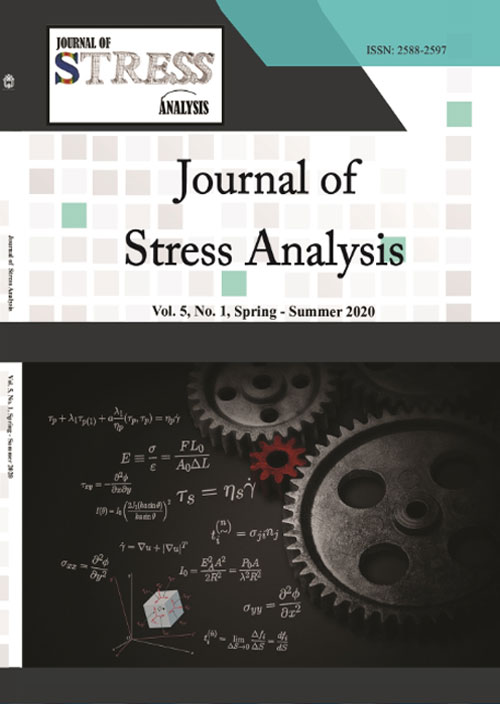Optimization of Superimposed Residual Stress Components to Improve Fatigue Life of Work Roll in Hot Rolling Process Using Artificial Neural Network and Genetic Algorithm
Author(s):
Article Type:
Research/Original Article (دارای رتبه معتبر)
Abstract:
In this paper, a semi-analytical model was proposed to superimpose the initial residual stress components on the work roll surface and subsurface to minimize the maximum value of Von-Mises Stresses (MVMS) during the hot rolling process to reduce the possibility of roll wear and increase the fatigue life. A Finite Element Model (FEM) was proposed to assess the temperature and thermomechanical stress in work roll during hot rolling. An analytical method was developed to implement the three initial residual stress components designed by the full factorial analysis of variance (ANOVA) method in the obtained FEM thermomechanical stress results. An Artificial Neural Network (ANN) was used to establish an objective function to relate the initial residual stress components to the MVMS. Subsequently, the single and multi-objective Genetic Algorithm (GA) optimization were used to find the optimal value of initial residual stress components to minimize the MVMS on the surface and subsurface of the work roll. The results showed a significant reduction of boththe value and amplitude of the MVMS on surface and subsurface of a work roll during the hot rolling process.
Keywords:
Language:
English
Published:
Journal of Stress Analysis, Volume:6 Issue: 2, Autumn-Winter 2022
Pages:
97 to 105
https://www.magiran.com/p2496184


